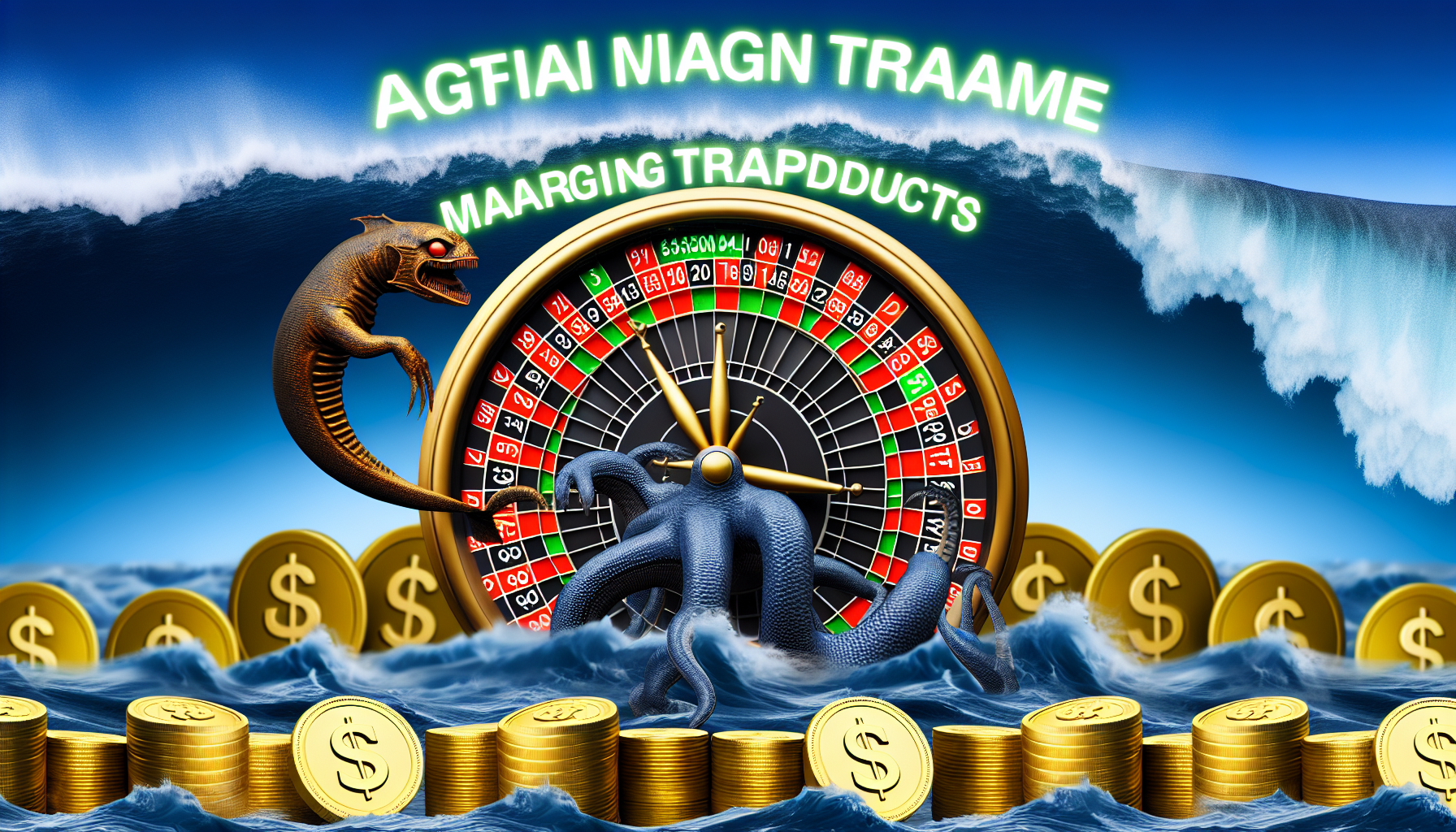Kraken fined $5.1M in Australia for high-risk margin trading violations. Retail investors face losses as regulatory scrutiny intensifies. #Crypto #Regulation #Kraken
- Understanding the Kraken Controversy: Why It Matters
- The Evolution of Crypto Regulation: Setting the Stage for Kraken
- Main Insights on Kraken’s Regulatory Breach
- Navigating Challenges in Cryptocurrency Regulation
- What Lies Ahead for Crypto Regulations
- Final Reflections on Kraken’s Regulatory Breach
Understanding the Kraken Controversy: Why It Matters
In a significant regulatory move, Australia’s financial watchdog, the Australian Securities & Investments Commission (ASIC), has imposed a $5.1 million fine on Bit Trade, the entity operating Kraken’s Australian exchange. This incident marks a pivotal moment in cryptocurrency regulation, highlighting the importance of consumer protection in high-risk financial products. But what led to this hefty fine, and what are the broader implications for the cryptocurrency market? This article delves into the details surrounding the fine, providing key insights and lessons for investors and exchanges alike.
The Evolution of Crypto Regulation: Setting the Stage for Kraken
Cryptocurrency markets have long been viewed as the Wild West of finance, with rapid growth and innovation often outpacing regulatory frameworks. In recent years, however, countries around the world have begun to implement stricter regulations to protect investors and ensure market stability. Australia is no exception, with its design and distribution obligations (DDO) framework playing a crucial role in shaping the landscape for financial products.
Launched in October 2021, the DDO regime requires companies to develop and implement target market determinations (TMDs) for their financial products. These determinations help firms identify their customer base and ensure that their products are marketed appropriately. The case against Bit Trade, therefore, serves as a landmark moment in the enforcement of these rules, underscoring ASIC’s commitment to safeguarding retail investors from potentially harmful financial products.
Main Insights on Kraken’s Regulatory Breach
How the Breach Occurred
Kraken’s troubles began when Bit Trade unlawfully issued a credit facility to retail customers in Australia, allowing them to engage in high-risk margin trading. Over 1,100 retail customers fell victim to this offering, leading to more than $5 million in collective losses. The breach was significant not just because of the financial implications, but also because it violated ASIC’s DDO framework. Without a proper TMD, Bit Trade was unable to determine the suitability of their margin trading products for retail investors, leading to inappropriate marketing and substantial losses.
The Role of Compliance in Financial Products
One of the most striking findings from the ASIC investigation was the “seriously deficient” compliance system at Bit Trade. The company failed to implement necessary measures to ensure that their products were only offered to suitable customers, highlighting a glaring oversight in their regulatory responsibilities. This negligence ultimately resulted in substantial financial harm to retail investors, emphasizing the critical importance of robust compliance systems in the financial sector.
The Impact on Retail Investors
The fallout from Kraken’s regulatory breach has been severe, particularly for retail investors. According to ASIC, 225 retail clients each lost more than $1,000, while one individual suffered a staggering loss of nearly $4 million. These losses underscore the risks associated with high-leverage financial products, particularly in volatile markets like cryptocurrency. For many affected investors, the damage is irreversible, serving as a cautionary tale for others considering margin trading.
Navigating Challenges in Cryptocurrency Regulation
Balancing Innovation and Regulation
The cryptocurrency market is characterized by rapid innovation and constant evolution, which can make it challenging for regulators to keep pace. While regulatory frameworks like the DDO are essential for protecting investors, they must be carefully balanced with the need to foster innovation and growth in the industry. Striking this balance is a complex task that requires ongoing collaboration between regulators, exchanges, and industry stakeholders.
Ensuring Fair Marketing Practices
One of the key challenges highlighted by the Kraken case is the need for fair and transparent marketing practices in the financial sector. Companies must ensure that their products are marketed accurately and that customers are fully informed about the associated risks. This is particularly important in high-risk areas like margin trading, where the potential for significant losses is high. By adopting clear and honest marketing practices, exchanges can help build trust with their customers and promote a more stable market environment.
What Lies Ahead for Crypto Regulations
As the cryptocurrency market continues to grow, so too will the need for effective regulatory oversight. The Kraken case serves as a reminder that regulators are becoming increasingly vigilant in their efforts to protect investors and ensure market integrity. Looking ahead, we can expect to see more stringent regulations and enforcement actions aimed at curbing risky practices and promoting transparency in the industry.
ASIC’s ongoing consultation with the digital assets sector is a positive step towards developing a more comprehensive regulatory framework for cryptocurrencies. By seeking feedback from industry stakeholders, ASIC can better understand the unique challenges and opportunities within the market, allowing them to craft regulations that support both investor protection and innovation.
Final Reflections on Kraken’s Regulatory Breach
The $5.1 million penalty imposed on Bit Trade is a clear indication that regulators are taking a hard stance against non-compliance in the cryptocurrency market. For exchanges and investors alike, this serves as a crucial lesson in the importance of adhering to regulatory standards and prioritizing consumer protection. As the market continues to evolve, it is essential for all stakeholders to remain vigilant and proactive in their efforts to foster a safe and transparent financial ecosystem.
In conclusion, the Kraken case highlights the need for robust compliance systems, fair marketing practices, and ongoing collaboration between regulators and industry participants. By embracing these principles, the cryptocurrency market can continue to thrive while ensuring the safety and security of its participants.
